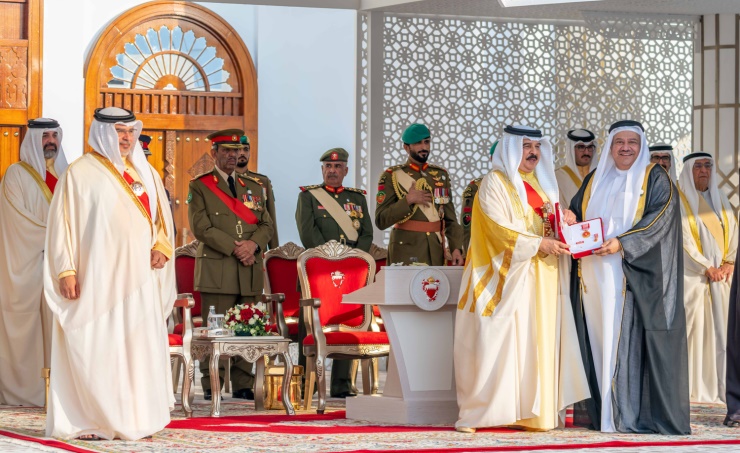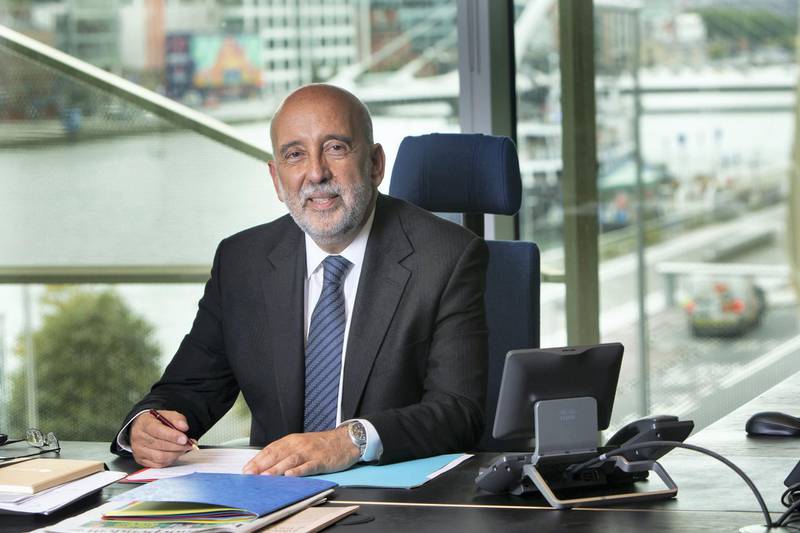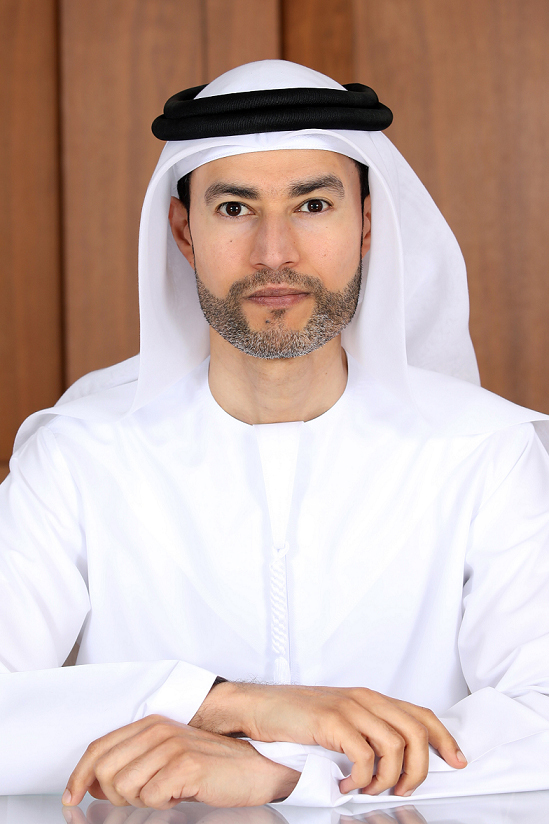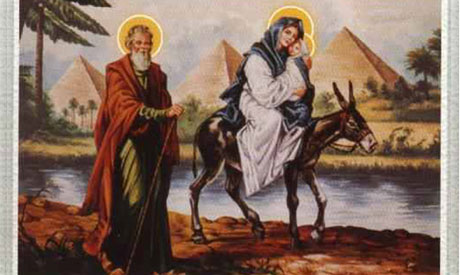Once a migrant worker in a Midwestern car parts factory, the Yemeni healthcare practitioner is now Hamtramck’s first Muslim mayor. His secret? Never giving up on his goals.
mer Ghalib’s third day in an American high school was very nearly his last when he was given consecutive zero grades for not doing the set homework.
With cheeks burning as the maths teacher berated him in front of the other pupils, a despondent Ghalib, then 18, resolved to quit.
Back home in Yemen, he had been top of the class but 10-hour night shifts on the production line of a Midwestern car parts factory left little enough time for sleep and lessons, never mind extra academic work.
“Everyone was looking at me,” Ghalib, now 43, tells The National. “It was embarrassing. I only went to high school to learn English. That was my goal.
“But the Egyptian maths teacher, Abdul Salam, started focusing on me. He must have thought I didn’t care about school so he picked on me.”
There seemed little point in continuing but then Mr Salam wrote a complicated algebraic problem on the blackboard as a challenge for his cohort.
Ghalib volunteered to have a go, rose from his seat, picked up the chalk and solved the problem without uttering a word.
“After class, the teacher said in Arabic: ‘You’re smart and you know your stuff, why don’t you do your homework?’
“When I told him there was no time because I had to work in a factory for $7 an hour, he said: ‘If you finish college, you can make $70 an hour.’
“That was the moment that changed my life because before that I had decided not to come to school any more.”
The intervention put him back on track to achieve his childhood ambition of holding public office, a dream fulfilled when he last year became the first Muslim mayor of Hamtramck in the Great Lakes region of Michigan.
On reflection, though, Ghalib concedes that the route to get there was circuitous with a lengthy diversion by way of the field of medicine.
Born in Yemen, his was an idyllic childhood in the village of Al Awd in Ibb province in the rugged mountains of the country’s south-west.
He excelled in maths and science at the tiny Al Islah school in the neighbouring village of Nashawan, where Egyptian, Syrian and Iraqi teachers doubled up on subjects for children of every age from elementary to high school in a handful of classrooms.
In his spare time, young Amer played football in local leagues, becoming an Argentina fan after watching Diego Maradona’s record-breaking five goals and five assists in the 1986 World Cup, and wrote poetry.
So it was apt when he was inaugurated as mayor a year ago that he quoted translated lines about determination and persistence by one of his favourite Yemeni poets, Abdulaziz Al Maqaleh.
“The poem was about never giving up,” he says. “Poetry makes me feel great because I can express my feelings about anything.
“Some people think it’s odd for a healthcare practitioner and politician to write poetry but it’s a way of expressing what’s inside. I still write.”
Career inspiration was to come in the form of his great-uncle, Dahan Najar, on whose every word Amer would hang as the family was regaled with tales of his travels to the then Soviet Union and work as a diplomat.
“They would call him doctor,” Ghalib says, “and I wanted to be just like him. He was my role model.
“He had completed a doctorate in political science in Russia and worked in government — so, at that young age of five or six, I decided I wanted to be a politician.”
Fate, however, seemed to have other plans. As the eldest of 10 siblings, Amer was expected to leave his village to work in the US and send money home.
The path was well-trodden by friends, neighbours and Ghalib antecedents, whose earnings were vital to keep the farming community thriving.
His father, Mahmoud, and grandfather, Ali, had by turns lived in Hamtramck for many years, where work was plentiful and migrant labour in demand.
“They needed me to come here and support the family,” he says, of dutifully taking a job in the American car industry. “I was very upset because I thought my future was over.”
And there, on the industrial floor of the MES corporation, he, too, might have toiled for decades before returning to settle in Yemen but for his overriding desire to make something more of himself.
Unlike those who went before him, Ghalib was to become representative of the modern-day immigrants who see their future as proud Yemeni-Americans.
He is quick to point out, though, that their lives nonetheless have a firm footing in tradition, saying they are not so much the “sandwich generation” of their western counterparts but more like the sabayahpastry. “We support multiple layers of relatives and neighbours,” Ghalib says.
Six months into his job on the factory floor, he applied to enrol on an adult evening class to learn English. The cousin with whom he was living at the time was accepted but Ghalib, deemed to be too young, was not.
On the advice of co-workers, who gave the erroneous assurance that homework was not compulsory, he registered to complete his final year of high school, attending classes from 7.30am until 2.30pm, then catching a lift to the factory with a colleague to work until 1am.
Mr Salam soon encouraged Ghalib to scale back his shift so he could spend two hours in the cafe doing his homework but the pupil often put in even more time afterwards to spare himself any further humiliation.
“That teacher was an inspiration. He told me not to waste my talent.”
His graduation on the school’s football pitch in the summer of 2000 was captured in photographs taken by his cousin that were sent to his father in Yemen.
One of the first people to be consulted about Ghalib’s next step was his revered great-uncle Dr Najar but the response was not what the young man had expected.
“He said: ‘Politics is not going to feed you. You are smart, you can do something professional that will help you survive.’
“So I decided to do medicine because my second favourite thing was science.”
With his English language skills still lacking, Ghalib struggled to obtain entry to medical school after completing a degree in biological science at Henry Ford Community College, transferring to Wayne State University in Michigan after two years.
He returned to Yemen in 2005 to marry Iman, now 36, then enrolled at Ross University School of Medicine in the Caribbean and went on to do two years of clinical rotations at Sinai Grace hospital in Detroit.
These days, as he awaits an opportunity for a residency, the father of three daughters – Mayasm, 15, Ansam, 13, and Balsam, three – juggles work as an assisting physician along with a master’s degree in nursing online in the hope of opening a medical practice.
“I’m a multi-tasker,” he says. “I never give up on anything. If I don’t accomplish my goal one way, I try another.”
Which explains why, when conservative community leaders felt aggrieved at the relaxing of marijuana licensing laws in Hamtramck, Ghalib saw not only an important issue to get behind but a political opportunity.
“The people who used to run in local elections were the same every time and never solved any of the city’s problems,” he says.
“They did not represent us well, especially the Muslim immigrants. The leaders did not listen to the people and we were looking for someone to take over. I said I could do it and serve the people.”
He won an astonishing 68 per cent of the vote — more than double that of the long-time incumbent Karen Majewski, bringing an end to the city’s string of Polish mayors for the past century.
“When I registered, some people were sceptical and said: ‘He will lose, no one knows him.’ But there are a lot of Yemenis here in Hamtramck and they knew me very well.
“They knew I would be a strong candidate and that, even though I didn’t have much experience of public office, I had the skills to succeed.”
It hasn’t all been plain sailing since. Ghalib faces a mountain of woes, including ageing infrastructure, a city council budget deficit and replacing poisonous lead pipes in homes.
But one of the biggest challenges has been trying to unite a city long in the media spotlight for its diversity.
A welcome sign at the border sums up its reputation for being the UN in microcosm: “The world in two square miles.”
Polish shopfronts now sit side by side Yemeni restaurants and Bangladeshi shops, flyers are printed in Arabic, and the adhanis heard on street corners as large numbers of Arabs and Asians continue to make Hamtramck their home.
While some have seen his appointment — and that of fellow Arab American mayors Bill Bazzi in nearby Dearborn Heights and Abdullah Hammoud in Dearborn — as a celebration of growing multiculturalism in the US, there has been a backlash from some quarters.
Critics have scoured posts on Ghalib’s social media platforms to accuse him of bigotry but his response has been: “We try to represent everyone and make them feel this is their home, no matter what religion or background they have. I try to serve people equally.”
His inauguration followed Hamtramck becoming the first US city with a Muslim-majority council in 2015. The councillors are now all Muslim, and, for Ghalib, the ceremony held at the school where he set out to alter his own destiny marked just how far both he and his adopted home had come.
As he looked out over the auditorium, he recalled his school careers adviser saying: “I don’t think you’ll have any future in politics in this country. You’ll always speak English with an accent and your background will not be in your favour.”
With a wry smile, he told the audience: “I still do speak with an accent — but I have decided to come back and embrace my first love, politics.”
Almost a year into the part-time municipal role and nine Fifa World Cups after Argentina last lifted the trophy, Ghalib watched the first half of the 2022 final last month with a local Bangladeshi crowd before moving to another lounge to join fellow Yemenis for the rest of the match.
All assembled were agreeably cheering for the mayor’s favourite side — except for three fans belatedly exposed as France supporters when the second equaliser was scored.
On his Facebook feed once the tense penalty shoot-out was over, he wrote that the win for Lionel Messi’s squad, “after a lot of trouble, is what makes the victory more sweet and deserved”.
Having overcome adversity to hit goal after goal, and making countless assists along the way, Ghalib knows exactly how that feels.
source/content: thenationalnews.com (headline edited)
__________

_______________________
AMERICAN / YEMEN











